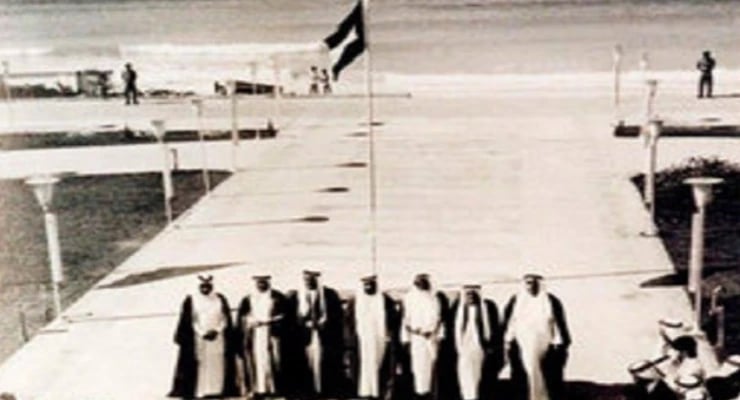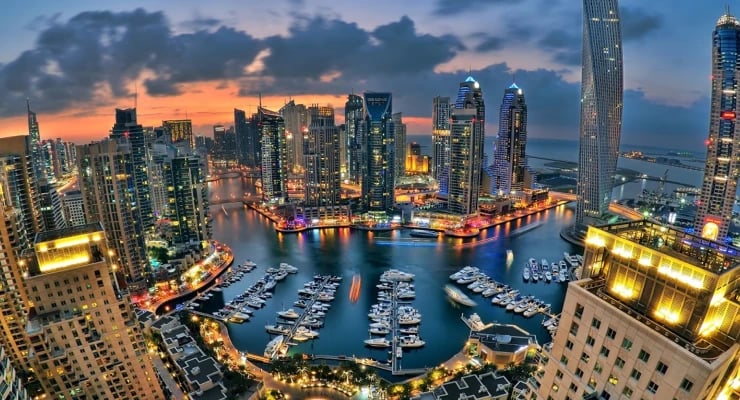History of the United Arab Emirates and Its Rulers

The United Arab Emirates (UAE), a federation of seven emirates, occupies a pivotal position on the Arabian Peninsula. Its strategic location, coupled with its rich history and diverse landscapes, has made it a global center for commerce, culture, and innovation. In this blog, we will explore the geographical significance of the UAE, its historical role as a crossroads of civilizations, and how its unique location has contributed to its remarkable economic growth and development.
- An Overview of the UAE and the Importance of Its Geographical Location
- The History of the UAE
- 1. The Conditions Leading to the Union and Reasons for Unification
- 2. The Official Declaration of the Establishment of the UAE in 1971
- 3. Sheikh Zayed bin Sultan Al Nahyan and His Role in Achieving Unity
- 4. The Role of Other Founding Rulers, Such as Sheikh Rashid bin Saeed Al Maktoum
- 5. The Current Rulers
- The Achievements of the UAE
- Future Prospects and Continued Development
An Overview of the UAE and the Importance of Its Geographical Location
The United Arab Emirates (UAE) is one of the most distinguished countries in the Arabian Gulf region, located on the southeastern coast of the Arabian Peninsula. It shares borders with Saudi Arabia to the south and west and Oman to the southeast. The UAE's coastline along the Arabian Gulf stretches for over 650 kilometers, making it a focal point for global trade throughout history. The UAE has been a meeting point for maritime routes connecting East and West, contributing to its rich economic and cultural ties with various civilizations.
In addition to its strategic location, the UAE boasts diverse environments, including coastlines, deserts, mountains, and green areas, making it an attractive destination for tourism and investment. This unique location has turned the UAE into an essential economic and trade hub that enhances its regional and international significance.
The History of the UAE
1. The Conditions Leading to the Union and Reasons for Unification
Before the establishment of the UAE, the region consisted of seven independent emirates with varying levels of economic development. The population relied primarily on fishing, pearl diving, and limited trade, making the economic life simple and fluctuating. The discovery of oil in the 1950s marked the beginning of a gradual transformation in the region’s economy, yet the lack of unified infrastructure posed a significant challenge.
External threats and political unrest in the region encouraged local leaders to consider unification as a way to form a stronger entity capable of addressing these challenges. Additionally, Britain, which had maintained control over the region through protection agreements, announced its intention to withdraw from the Gulf by 1971, further motivating the emirates to come together to secure independence and stability.
Related: Types of Residence Permits in the UAE and How to Obtain Them.
2. The Official Declaration of the Establishment of the UAE in 1971
On December 2, 1971, the rulers of the seven emirates convened at the Guest Palace in Dubai to announce the formation of the United Arab Emirates. Sheikh Zayed bin Sultan Al Nahyan, who became the first President of the UAE, and Sheikh Rashid bin Saeed Al Maktoum, who played a pivotal role in achieving unity, were key figures at this historic event. The official declaration came after agreeing on a provisional constitution that outlined the relationships between the emirates and defined the federal policies of the new state.
This historic day marked a significant turning point in the region’s history, as the UAE embarked on a period of rapid growth in various fields, driven by the cooperation among its rulers and their collective efforts to create a promising future for the Emirati people.
Read also: The Importance of Obtaining a Dubai Visa.
3. Sheikh Zayed bin Sultan Al Nahyan and His Role in Achieving Unity
Sheikh Zayed bin Sultan Al Nahyan, may he rest in peace, was the UAE's visionary leader and founding father. Known for his wisdom and far-sighted vision, Sheikh Zayed played a crucial role in uniting the seven emirates. He was not just a statesman but a leader with a comprehensive vision aimed at sustainable development and progress for all Emiratis. His continuous efforts and deep belief in the importance of unity enabled him to foster consensus among the rulers and motivate them to overcome challenges and make the dream of union a reality.
4. The Role of Other Founding Rulers, Such as Sheikh Rashid bin Saeed Al Maktoum
Sheikh Rashid bin Saeed Al Maktoum, then Ruler of Dubai, was a key partner in the unification process. He worked closely with Sheikh Zayed to achieve this goal, believing that strength lies in unity. Sheikh Rashid contributed significantly to fostering cooperation among the rulers and supported the concept of the union with his insightful vision and practical contributions, which helped establish the infrastructure that made Dubai a major commercial hub in the region.
5. The Current Rulers
Following the passing of Sheikh Zayed in 2004, Sheikh Khalifa bin Zayed Al Nahyan assumed the presidency and led the UAE into a new era marked by infrastructure development, economic growth, and sustainable policies. With Sheikh Mohamed bin Zayed Al Nahyan's presidency following Sheikh Khalifa, the UAE continued to achieve remarkable advancements in technology, economics, and foreign policy. Sheikh Mohammed bin Rashid Al Maktoum, as the Vice President and Ruler of Dubai, continues to spearhead significant projects aimed at establishing Dubai as a global city that embraces innovation and development in various sectors.
Read also: Exploring Sheikh Zayed Grand Mosque in Abu Dhabi.
The Achievements of the UAE
1. Economic Achievements
The UAE has witnessed tremendous economic growth, becoming one of the fastest-growing economies globally. The country is known for diversifying its sources of income, leveraging oil, tourism, trade, and logistics. Smart economic policies and investments in infrastructure have transformed the UAE into a global business and investment center, now home to major international corporations and financial institutions. Furthermore, the UAE has successfully developed new sectors, such as renewable energy and space exploration, solidifying its position as a competitive player on the world stage.
Read also: Exploring The Tourist Cities in the UAE.
2. Social and Cultural Achievements
In the social sector, the UAE has focused on enhancing the quality of life for its citizens and residents. Significant progress has been made in education and healthcare, positioning the UAE among the leading countries in providing advanced health and educational services. Culturally, the UAE has become a hub for arts and culture in the region, featuring world-class museums such as the Louvre Abu Dhabi and hosting various cultural events and festivals. The country has also hosted global events like Expo 2020 Dubai, showcasing its role as an international destination that brings together cultures and ideas from around the world.
Future Prospects and Continued Development
The UAE is expected to continue advancing at a rapid pace, with state policies focusing on promoting innovation, sustainability, and the development of new sectors such as artificial intelligence and clean energy. The UAE's Vision 2071 aims to position the country among the best in the world in terms of living standards and economic development. Ongoing investments in smart infrastructure education and research are key priorities to ensure the realization of these ambitious goals.

For All Your Tourism Needs in the UAE, Consult Safaraq Tourism
If you're looking for a unique travel experience in the UAE, Safaraq Tourism, our company specializing in UAE tourism, offers a wide range of tailored programs to meet travelers’ needs. Whether you’re interested in cultural tours exploring historical and heritage sites, exciting desert adventures, or luxury shopping trips in world-famous malls, Safaraq Tourism provides a comprehensive and distinguished experience that will make your visit to the UAE unforgettable.
Featured tourist services
We offer top tourist services with the highest standards of quality and luxury with 24/7 follow-up.

Flight reservations

Tourist programs

Hotels and Resorts

Car Reservation

Group Tours

VIP Services
Subscribe To Our Newsletter
Find More About The Latest Safaraq






















 Home
Home




